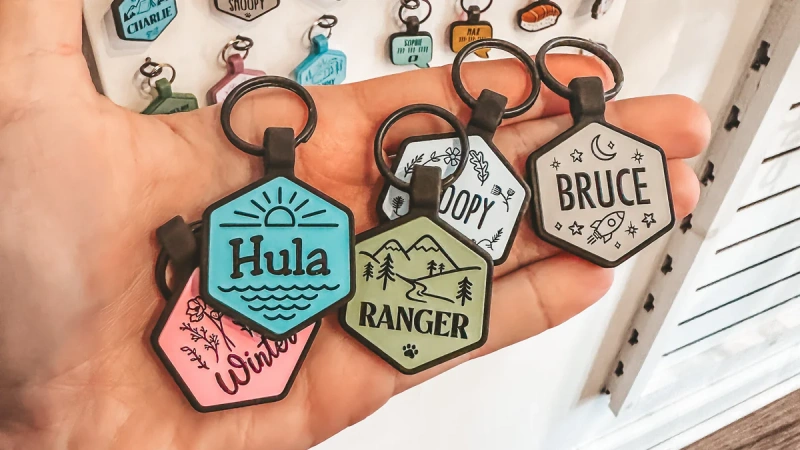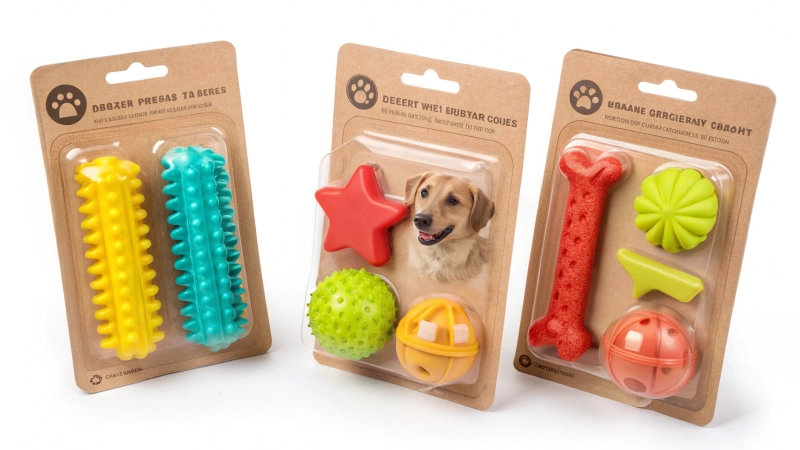
Starting a dog collar business in 2025 presents a lucrative opportunity within the expanding pet industry. With the increasing demand for personalized and fashionable pet accessories, entrepreneurs can capitalize on this trend by following a structured approach. This blog will guide you through the essential steps to launch your dog collar business successfully, in collaboration with Wedogy, a leading dog collar manufacturer in China.
Introduction
The pet industry is experiencing significant growth, particularly in the accessories segment. As pet ownership rises, so does the demand for unique and stylish dog collars. Starting a dog collar business not only taps into this booming market but also allows you to express creativity while providing pet owners with products that enhance their pets’ safety and style. Partnering with Wedogy, an industry-leading manufacturer, can provide you with high-quality products and valuable insights to help you succeed.
1. Market Research

Understanding Industry Trends
The global dog collar market is projected to grow significantly, with an estimated value of approximately $348.98 million in 2025 and a compound annual growth rate (CAGR) of 5.4% through 2035[4]. Key trends include an increasing focus on personalization and fashion, as pet owners view collars as extensions of their pets’ personalities[2].
Identifying Target Audience
Your primary customers will be dog owners who prioritize style and safety for their pets. Additionally, consider targeting pet boutiques that are looking to stock unique products. Analyzing competitors in various regions can provide insights into popular brands and market gaps. Wedogy can assist in identifying trending dog collar brands for reference.
2. Business Planning

Creating a Business Plan
Outline your business goals, strategies for reaching your target audience, and financial projections to guide your operations.
Legal Considerations
Choose an appropriate business structure (LLC or sole proprietorship) and ensure you register your business according to local regulations.
3. Product Development

Consider focusing on customized dog collars, as this niche currently has less competition and offers significant potential for growth.
Designing Collars
Utilize unique designs and materials such as nylon and leather. Incorporate customization options like personalized name tags. Tools like Recraft.ai can help generate logos and patterns.
Sourcing Products
Opt for sourcing from China, where Wedogy offers some of the lowest minimum order quantities (MOQ) at just 20 units. This flexibility allows you to test various designs without significant upfront investment.
4. Setting Up Your Business

Establishing an online presence is crucial for reaching customers effectively.
E-commerce Platforms Comparison
When starting a dog collar business, choosing the right e-commerce platform is crucial for your success. Here’s a comparison of some of the top e-commerce platforms available in 2025, highlighting their features, pricing, and suitability for your business.
E-commerce Platforms Comparison
| Platform | Key Features | Pricing | Pros | Cons |
|---|---|---|---|---|
| Shopify | – User-friendly interface – Extensive app marketplace – Multichannel selling – Abandoned cart recovery – Customizable checkout options |
Starts at $29/month | – Easy to set up – Rich built-in features – Strong community support |
– Transaction fees on third-party gateways – Limited free themes |
| Etsy | – Marketplace for handmade and vintage items – Built-in traffic – Simple setup process |
Free to start; $0.20/listing fee | – Great for artisans and crafters – No subscription fee for basic use |
– Higher transaction fees – Limited customization options |
| Wix | – Drag-and-drop builder – Integrated marketing tools – Mobile optimization |
Starts at $23/month | – Highly customizable designs – Good for small businesses |
– May lack advanced e-commerce features |
| BigCommerce | – No transaction fees – Advanced SEO tools – Multi-channel selling capabilities |
Starts at $29.95/month | – Robust features for scaling businesses – Great for larger catalogs |
– Can be complex for beginners |
| Squarespace | – Beautiful templates – Integrated blogging features – Good for portfolio sites |
Starts at $16/month | – Visually appealing designs – All-in-one solution (hosting + eCommerce) |
– Limited payment gateways compared to Shopify |
| Shift4Shop | – Free for users of Shift4 payment gateway – Basic e-commerce functionality |
Paid plans start at $29/month; free if using Shift4 payment gateway | – Simple setup; mobile-friendly design | – Lacks advanced features compared to others |
| WooCommerce | – Highly customizable (WordPress plugin) – Wide range of extensions available |
Free (hosting costs apply) | – Flexible and powerful for WordPress users | – Requires more technical knowledge to set up |
Detailed Insights
-
Shopify
- Best For: Entrepreneurs looking to create a branded online store with extensive customization options.
- Strengths: Shopify is known for its user-friendly interface and powerful features, allowing you to manage everything from inventory to payments seamlessly. It supports various sales channels, including social media and marketplaces.
- Weaknesses: While it offers great functionality, there are additional transaction fees if you use third-party payment gateways.
-
Etsy
- Best For: Artisans and crafters wanting to sell unique handmade or vintage items.
- Strengths: Etsy provides built-in traffic and a community of buyers specifically looking for handmade goods. The setup process is straightforward, making it easy to start selling quickly.
- Weaknesses: Etsy has higher transaction fees compared to other platforms, and customization options are limited due to its marketplace nature.
-
Wix
- Best For: Small businesses seeking an easy-to-use website builder with e-commerce capabilities.
- Strengths: Wix offers a drag-and-drop interface that allows for high customization without needing coding skills. It’s ideal for visually appealing websites.
- Weaknesses: While it has good basic e-commerce features, it may lack some advanced functionalities needed as your business grows.
-
BigCommerce
- Best For: Businesses planning to scale quickly with a large product catalog.
- Strengths: BigCommerce provides robust tools for SEO and multi-channel selling without transaction fees.
- Weaknesses: The platform can be complex for beginners due to its wide array of features.
-
Squarespace
- Best For: Creative businesses needing a visually appealing website alongside e-commerce functionality.
- Strengths: Squarespace is known for its stunning templates and integrated blogging capabilities, making it great for storytelling.
- Weaknesses: It has fewer payment gateway options compared to Shopify.
-
Shift4Shop
- Best For: Users already using Shift4’s payment gateway looking for a straightforward online store setup.
- Strengths: Offers a free plan if you use Shift4 as your payment processor, making it cost-effective.
- Weaknesses: Lacks some advanced e-commerce features compared to other platforms.
-
WooCommerce
- Best For: WordPress users wanting complete control over their online store.
- Strengths: Highly customizable with numerous plugins available, making it suitable for various business models.
- Weaknesses: Requires more technical expertise to set up and manage effectively.
Branding
Develop a strong brand identity that resonates with your target audience by focusing on quality, uniqueness, and customer service.
5. Marketing Strategies

Social Media Marketing
Leverage platforms like Instagram and Facebook to showcase your products visually.
SEO and Content Marketing
Optimize your website for search engines to attract organic traffic through blogs or articles related to pet care.
Collaborations and Partnerships
Engage with pet influencers or local pet shops to promote your products through partnerships.
6. Sales Channels

When starting a dog collar business, selecting the right sales channels is crucial for reaching your target audience and maximizing sales. Here are various avenues you can explore to effectively sell your products:
Sales Channels for Your Dog Collar Business
1. E-commerce Platforms
- Your Own Website: Creating a dedicated eCommerce website allows you to build your brand identity and directly engage with customers. Use platforms like Shopify or WooCommerce to set up an online store.
- Marketplaces: Leverage popular online marketplaces such as:
- Etsy: Ideal for handmade and personalized items, Etsy attracts customers looking for unique dog collars. Optimize your listings with keywords and high-quality images to enhance visibility.
- Amazon: With its vast customer base, Amazon can significantly increase your reach. Ensure your product descriptions are compelling and utilize Amazon’s advertising tools to boost visibility.
- eBay: Consider eBay for selling both new and used collars, appealing to budget-conscious consumers.
2. Social Media
- Instagram and Facebook: These platforms are excellent for showcasing visually appealing products. Use engaging content, such as photos of dogs wearing your collars, customer testimonials, and behind-the-scenes production processes.
- Pinterest: Given its visual nature, Pinterest is particularly effective for promoting personalized pet supplies. Create boards that feature your collars alongside pet care tips or styling ideas.
3. Local Pet Stores and Markets
- Wholesale Partnerships: Build relationships with local pet store owners to stock your collars on their shelves. Offer attractive wholesale prices to encourage them to carry your products.
-
Local Markets and Fairs: Participate in community events or pet expos where you can showcase your products directly to potential
customers. This face-to-face interaction can help build brand loyalty.
4. Direct Sales
- Pop-Up Shops: Organize pop-up shops in collaboration with local businesses or during community events to create buzz around your brand.
- Home Parties: Host events where dog owners can come together to learn about your products and make purchases in a relaxed setting.
5. Collaborations and Partnerships
- Pet Influencers: Partner with pet influencers on social media who can promote your collars to their followers, increasing brand awareness and credibility.
- Co-branding Opportunities: Collaborate with local businesses, such as dog-friendly cafes or breweries, to create co-branded merchandise that appeals to pet owners.
6. Community Engagement
- Building a Community: Engage with dog owners through social media groups or forums. Share valuable content related to pet care while subtly promoting your products.
- Participating in Local Events: Attend pet-related events or expos where you can showcase your products, gather feedback, and connect with potential customers.
Budgeting and Funding
Estimate startup costs carefully and explore funding options such as loans or investors if needed.
Sales Tracking
Implement tools that help monitor sales performance and manage inventory efficiently.
Conclusion
Starting a dog collar business in 2025 involves careful planning, market research, and effective marketing strategies. By collaborating with Wedogy, you not only gain access to high-quality custom dog collars but also benefit from additional services such as free design support, sample provisions, and market research insights. Embrace this opportunity to create a successful venture in the flourishing pet industry!



